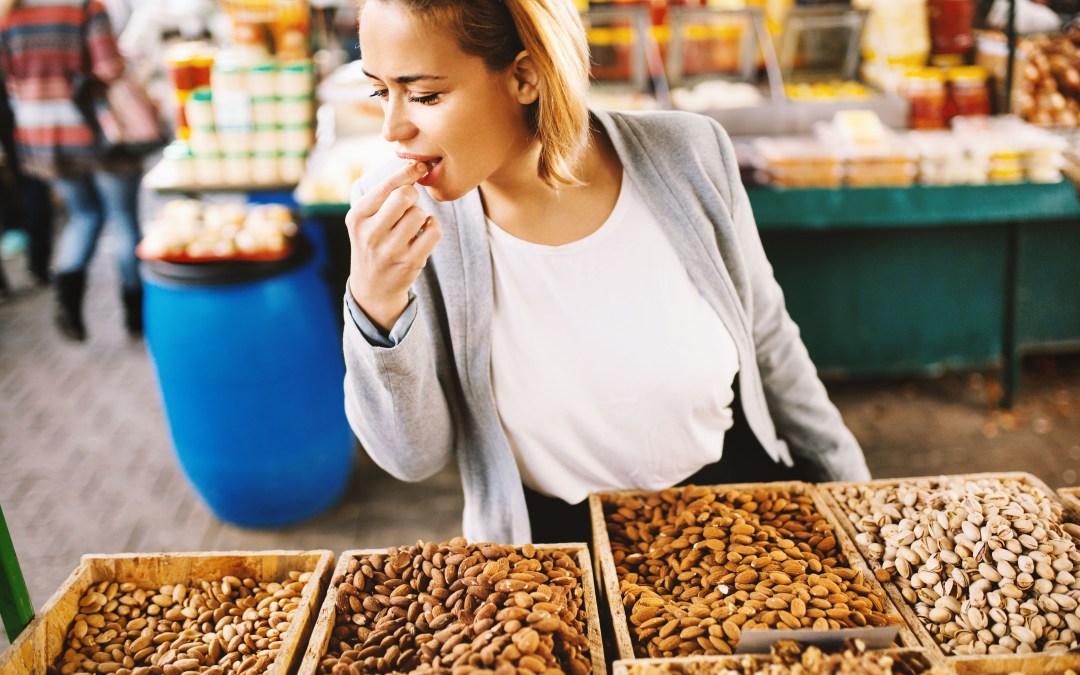How the gut-brain connection affects your mood
Nutrition Editor Eve Kalinik focuses on how the gut-brain connection affects our moods

5 minute read
Neurotransmitters are chemical messengers the gut and brain use to communicate with one another. They are produced by the brain in our head and the brain in our gut, aka the ‘little brain’. Neurotransmitters affect the ‘mood’ of both brains, and lower levels of some of them are seen in cases of depression and anxiety and gut conditions such as IBS.
‘Happy’ neurotransmitter serotonin plays a significant role in mood and a whopping 90 to 95 per cent of serotonin production in our body is from our little brain. Manufacture depends on enterochromaffin cells that sit in the lining of the gut, are packed full of serotonin and rely on gut microbes to ‘switch on’.
Moving on up
Although structurally the same, serotonin produced in the gut has a different role to serotonin made in the brain, but often the two can be reflected in one another; low mood may present with a slower gut, since serotonin guides motility through the gut. In reverse, when we have fewer trips to the loo, we can feel glum. Gut microbes also produce dopamine, which is linked to pleasure and motivation and gamma-aminobutyric acid (GABA), one of the most prevalent chemical messengers in the nervous system. GABA helps keep us emotionally ‘in check’, calm and less anxious.
While the influence on mood of neurotransmitters made in our brain is obvious, it isn’t yet clear how the ones made in our gut can have an impact on our mindset. Initial studies indicate that by positively nourishing the microbiome, we may also be encouraging a more general state of happiness. Supporting the thriving existence of the microbiome is crucial, so include plentiful and diverse amounts of fibre – fruit, vegetables, whole grains and nuts and seeds (enjoy the squashes and pumpkins that are bang in season!). Fermented foods, such as kefir, yoghurt and cheese, may also provide natural sources of beneficial bacteria for a more harmonious gut.
Wellbeing, in the brain and gut, begins with love, kindness and compassion for yourself. Make time to be kind to yourself – your microbiome and mind will be happier for it.
Eat
Oily fish is chock-full of omega-3 – great for brain and gut health. Think salmon, mackerel, sardines and anchovies. For plant-based meals, add seaweed – The Pembrokeshire Beach Food Company’s Welshman’s Caviar (£4.50) is lovely over stir-fried veggies on sourdough.
Brain food
The Psychobiotic Revolution by Scott C Anderson (National Geographic Society, £17.99) is a fascinating read examining the connection between our moods and the microbes in our gut.
Happiness 101
We know meditation enhances wellbeing. The joyful news is that the app Headspace has a dedicated happiness course!
For more from Eve Kalinik, visit evekalinik.com or follow her @evekalinik
Image: Getty








